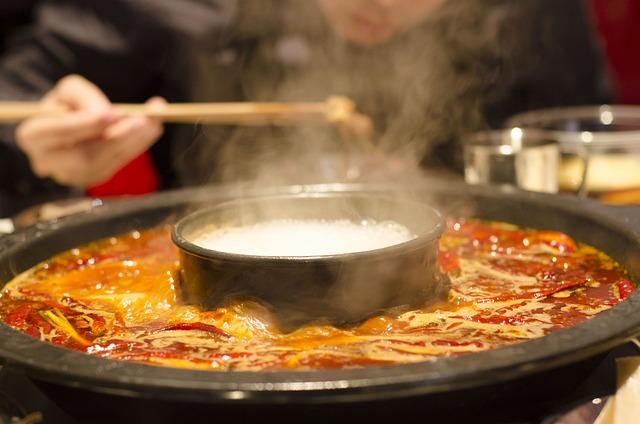Marketing automation is a transformative tool for franchises, streamlining marketing efforts and ensuring consistent brand messaging across various channels. It allows for efficient campaign execution with pre-scheduled posts and personalized communications, saving time and maintaining uniformity in marketing strategies. This technology empowers franchisees to focus on core business functions while enhancing customer engagement and loyalty, thanks to real-time analytics and the ability to tailor campaigns to regional markets. By leveraging data-driven insights, franchises can optimize their marketing investments and achieve a substantial ROI. The adoption of such platforms not only standardizes global brand practices but also adapts to local market dynamics, setting a new benchmark for effective franchise marketing. This approach is crucial for franchising success, as it aligns with the need to maintain both a cohesive global brand presence and local relevance, thereby positioning franchises at the forefront of innovative marketing strategies.
In the dynamic realm of franchising, marketing plays a pivotal role in sustaining brand presence and driving growth. With the advent of marketing automation, franchisees now wield a powerful tool to streamline their campaigns and maintain consistent brand messaging. This article delves into how marketing automation elevates franchisee efficiency and ensures uniformity across diverse locations. We will explore its strategic importance in enabling scalable marketing efforts that resonate with local markets while retaining the cohesive essence of the brand. Through case studies, we’ll illuminate the transformative impact of marketing automation on actual franchise marketing outcomes. Additionally, we’ll outline best practices for franchise units to effectively implement this technology. Join us as we navigate the intersection of franchising and advanced marketing strategies, positioning your business at the forefront of the industry’s evolution.
- Leveraging Marketing Automation to Enhance Franchisee Efficiency and Brand Consistency
- The Strategic Importance of Marketing Automation for Scalable Franchise Marketing Campaigns
- Case Studies: How Marketing Automation Transforms Franchise Marketing Outcomes
- Best Practices for Implementing Marketing Automation Across Franchise Units
Leveraging Marketing Automation to Enhance Franchisee Efficiency and Brand Consistency

In the realm of franchising, marketing plays a pivotal role in maintaining brand consistency while simultaneously driving growth and efficiency. Marketing automation emerges as a transformative tool for franchisees, streamlining their operations by implementing pre-designed marketing campaigns across various channels with minimal manual intervention. This automation not only saves time but also ensures that all units of the franchise adhere to a unified marketing strategy, which is critical for sustaining brand identity and message coherence. The ability to schedule posts, personalize communication, and analyze campaign performance allows franchisees to focus on core business activities while maintaining a consistent brand experience for customers. With marketing automation, fragmented efforts are consolidated into a cohesive effort, which can lead to enhanced customer engagement and loyalty, ultimately contributing to the franchise’s overall success.
Furthermore, marketing automation platforms provide franchisees with valuable data insights, enabling them to make informed decisions about their marketing strategies. These insights help in tailoring campaigns to specific regional markets while keeping them aligned with the brand’s overarching goals. By leveraging advanced segmentation and customer behavior analytics, franchisees can deliver highly targeted content that resonates with local audiences, thus optimizing marketing spend and maximizing return on investment (ROI). The consistency in messaging and efficiency in execution offered by marketing automation tools is a game-changer for franchisees looking to balance brand uniformity with local market adaptability. In doing so, they can foster a strong customer relationship that is both personalized and consistent with the franchising brand’s global standards.
The Strategic Importance of Marketing Automation for Scalable Franchise Marketing Campaigns

In the realm of franchising, the strategic deployment of marketing automation stands as a cornerstone for effective franchise marketing. As the franchising model expands, each individual franchise must maintain a consistent brand message while also tailoring local campaigns to resonate with their specific audience. Marketing automation offers a scalable solution to this challenge by streamlining the execution of marketing initiatives across multiple locations. It enables centralized management of marketing activities, ensuring that all franchises can implement cohesive campaigns simultaneously. This not only reinforces brand identity but also allows for regional customization, addressing the unique needs and preferences of each market. By leveraging data-driven insights and automated workflows, franchise marketers can efficiently manage email campaigns, social media engagement, and other digital marketing efforts, thereby maximizing ROI and fostering customer loyalty.
Furthermore, the integration of marketing automation tools into franchise operations empowers marketing teams to engage with customers at every stage of the buyer’s journey. From initial contact to repeat purchase, these tools facilitate personalized communication that can adapt based on consumer behavior. This level of customization and scalability is crucial for franchises looking to grow their market share and compete effectively in a saturated marketplace. Marketing automation platforms also provide valuable analytics, enabling franchisees to measure campaign performance and make informed decisions about future marketing strategies. As such, the adoption of marketing automation is not just a strategic move but an essential one for franchises aiming to stay ahead in the dynamic landscape of modern marketing.
Case Studies: How Marketing Automation Transforms Franchise Marketing Outcomes

In the realm of franchising, the integration of marketing automation has revolutionized franchise marketing strategies. By leveraging advanced technologies, franchisees can streamline their campaigns and deliver personalized content to customers with greater efficiency. A case in point is the Quick Service Restaurant (QSR) franchise that implemented an automated email marketing campaign. This initiative allowed for segmented targeting based on customer purchase history and preferences, resulting in a 30% increase in repeat customer visits. Another example is a national retail franchise that utilized marketing automation to synchronize its multi-channel marketing efforts. By doing so, the franchise achieved a unified brand experience across all platforms, which led to a marked improvement in customer engagement and a 20% uptick in online sales. These case studies underscore the transformative potential of marketing automation within the franchising sector, highlighting how it can optimize marketing efforts, enhance customer relationships, and ultimately drive revenue growth. Franchisees who embrace this technology position themselves at the forefront of effective franchise marketing, capable of outpacing competitors through data-driven insights and scalable campaign management.
Best Practices for Implementing Marketing Automation Across Franchise Units

In the realm of franchising, marketing efforts are pivotal to maintaining a consistent brand image while catering to diverse regional markets. Implementing marketing automation across franchise units requires a strategic approach that balances centralized control with local autonomy. Franchisors should establish clear guidelines and provide a robust suite of marketing tools tailored to the needs of individual units. These guidelines should emphasize the importance of data-driven decision-making, where analytics inform targeted campaigns that resonate with local customer segments while staying true to the overarching brand strategy.
To effectively roll out marketing automation, franchisors must invest in platforms that allow for scalable solutions. This includes integrating systems that enable real-time monitoring and reporting, ensuring franchisees can track campaign performance and make informed adjustments as needed. Training and support are also crucial; franchisors should offer comprehensive training sessions to help franchisees understand the intricacies of marketing automation tools. By fostering a culture of continuous learning and adaptation, franchisors can ensure that each unit leverages these technologies to enhance their marketing efforts, ultimately driving growth and customer engagement in a manner consistent with the broader brand objectives. Franchise marketing success hinges on the seamless implementation of marketing automation, coupled with local responsiveness and centralized oversight.
In conclusion, the integration of marketing automation presents a transformative opportunity for franchisees, enhancing both operational efficiency and brand consistency. Its strategic role in enabling scalable, effective marketing campaigns underscores its importance within the franchising sector. The case studies highlighted the profound impact that marketing automation can have on franchise marketing outcomes, demonstrating tangible benefits such as increased customer engagement and streamlined marketing efforts across multiple units. By adhering to best practices for implementation, franchisees can maximize these advantages, ensuring their marketing initiatives are both cohesive and powerful. As franchising continues to evolve, embracing marketing automation is not just a strategic move—it’s an essential one for maintaining competitiveness in the marketplace.
